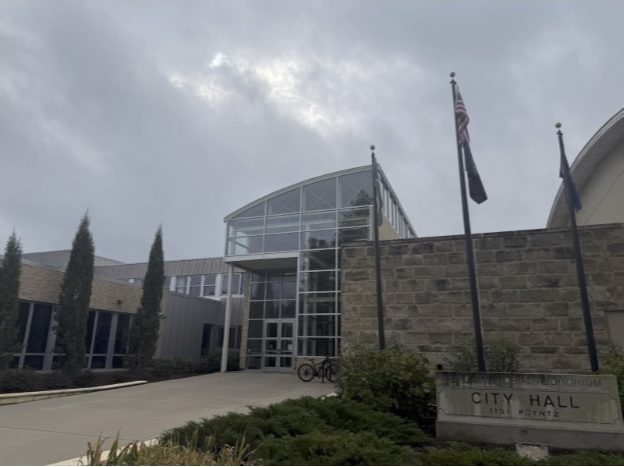Image: unsplash
Applying for student benefits shouldn’t feel like navigating a maze. Yet, many students stumble on avoidable hurdles.
Do you miss deadlines, submit incomplete applications, or misunderstand eligibility criteria? You’re not alone.
Let’s get practical. Explore eight common mistakes that trip up applicants and learn how to sidestep them with confidence. This guide offers real-world advice and expert insights so you can claim the support you’re entitled to.
It’s time to simplify the process together.
1. Misunderstanding Eligibility Requirements
A common pitfall in student benefits applications arises when students overlook eligibility criteria. Perhaps out of negligence or hurry, some assume they qualify based on one factor alone.
Each program has distinct requirements that consider multiple aspects – income levels, enrollment status, and even specific educational goals. Not aligning with these nuances can lead to rejections.
Exploring each benefit’s unique stipulations ensures alignment and smooths the path for acceptance while maximizing the aid you can receive.
2. Failing to Utilize Available Resources and Support Services
Applying for some benefits requires guidance from a peer or professionals. This is especially true if you’re new to the process. Failing to seek necessary support could lead to rejection. Thankfully, resources abound for those who care to seek them.
For instance, many universities offer financial aid offices with experts ready to assist in understanding complex applications. In scenarios like when applying for Tennessee disability benefits, leveraging local advocacy groups or state-specific helplines can significantly streamline your experience.
Accessing these resources isn’t just helpful – it’s strategic. They often provide workshops or one-on-one sessions that can reveal insights into specific requirements, deadlines, and procedures.
3. Overlooking Application Deadlines
This goes without saying. Failing to meet deadlines for student benefits applications often leads to missed opportunities and unnecessary stress. Each benefit program typically has a rigid timeline, crucial for processing your request efficiently.
Even if you’ve mastered the application itself, tardiness can derail your efforts entirely. To proactively counter this, consider using digital reminders or calendar alerts as practical tools to keep you on track.
Staying ahead of deadlines ensures access to all available resources when you need them most.
4. Submitting Incomplete Applications
Yet another common pitfall when applying for medical benefits or financial aid, submitting incomplete applications can easily lead to delays or denials. Every application form demands comprehensive and accurate information, often needing supplementary documentation.
Missing even a single piece of required data can cause your application to hit a standstill. Taking the time to double-check that all fields are completed before submission is crucial.
A complete application reflects diligence and significantly boosts your chances of success in securing benefits.
5. Ignoring Changes in Personal Circumstances
Let’s say you’re applying for a grant or scholarship, and your financial situation just recently changed – suddenly. Failing to update your application can jeopardize eligibility or the amount awarded.
Many benefits require accurate information on income, family size, or academic standing. Ignoring these changes might lead to misrepresentation and future complications.
Promptly notifying the relevant offices of any changes ensures they have up-to-date records, ultimately safeguarding your access to funds and support aligned with current needs.
6. Neglecting to Provide Necessary Documentation
It’s easy to overlook the importance of supporting documents when preparing benefit applications. Whether it’s financial aid or health insurance benefits, documentation plays a pivotal role in validating your claims and securing approval.
Your paperwork provides crucial info, including:
- Verification of income and expenses
- Confirmation of academic enrollment or status
- Medical reports or disability certifications
- Proof of residency or citizenship
Each document confirms specific aspects that the application process requires for verification. Having these on hand is not just about compliance; it reassures program administrators that your circumstances genuinely meet their criteria, paving the way for smoother processing and increased chances of success.
7. Not Keeping Copies of Submitted Forms and Correspondence
After your application, it pays to keep copies of every form and piece of correspondence. Failing to do so might leave you without reference points if discrepancies arise or details are questioned.
Having this documentation is like keeping a map when navigating complex procedures – it guides any necessary follow-ups and provides evidence should misunderstandings occur. This practice also helps track communication timelines, ensuring no critical responses are missed along the way.
Ultimately, maintaining organized records fortifies your position throughout the benefit application process.
8. Applying for the Wrong Type of Benefit
Last but not least, it’s not unusual to mistakenly apply for benefits that don’t match your circumstances. For instance, you could be aiming for a tribal scholarship and end up applying for a general one. Each program targets specific needs or demographics, and aligning correctly is crucial.
Understanding these nuances helps in selecting options that truly address your situation, ensuring both time and effort aren’t wasted on unsuitable applications. Choosing wisely maximizes potential support opportunities available to you.
Whether it’s financial aid, medical benefits, or specialized support, avoiding these common pitfalls is essential. By staying informed and proactive, you ensure your application process runs smoothly and enhances access to vital student resources.


























































































































